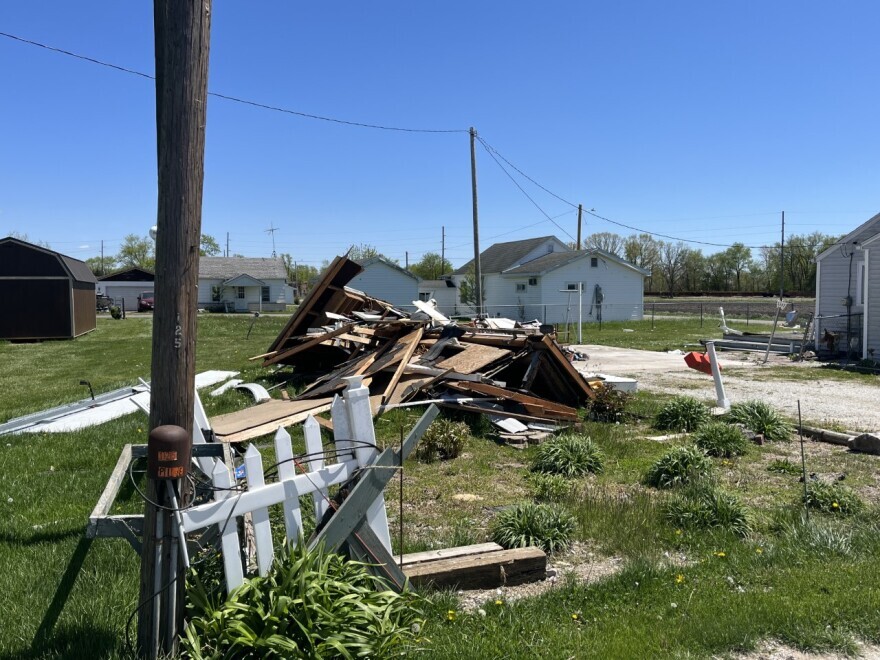Weather conditions this spring and summer have resulted in disaster declarations from the United States Department of Agriculture, the state of Illinois, and the state of Iowa.

USDA disaster declarations
The USDA has issued four separate disaster declarations for Illinois because of tornadoes and drought conditions during this year’s growing season.
Some of those designations include counties in west central Illinois.
Fulton, Knox, Mason, McDonough, Schuyler, and Warren counties all received the designation due to the April 4 tornado.
Knox, Warren, Henderson, and Cass counties are also included in a disaster declaration for tornadoes and high winds from March 31 through April 5.
In addition, Hancock, Adams, and Pike counties were included in a previous drought designation.
A Secretarial natural disaster designation allows the USDA Farm Service Agency to provide emergency loans to producers recovering from natural disasters. This assistance includes FSA emergency loans.
Farmers in eligible counties have eight months from the date of the Secretarial disaster declaration to apply for emergency loans.
Those eligible should contact their local USDA Service Center to ask questions or file a Notice of Loss.

Illinois’ disaster declaration
Illinois Gov. JB Pritzker has issued a state disaster declaration because of the damage caused by the severe storms on June 29. The declaration is for Hancock, McDonough, and six other counties.
The designation will give local entities more access to state resources and emergency personnel who can assist in response and recovery efforts.
Several rounds of storms passed through Illinois on June 29. They produced heavy rainfall, flash flooding, hail, tornadoes, and straight-line winds.
The state said central Illinois experienced a derecho that brought damaging straight-line winds resulting in five confirmed tornadoes, along with wind gusts in excess of 100 miles per hour across multiple counties.
The Illinois Emergency Management Agency and Office of Homeland Security (IEMA-OHS) reported that local resources in the communities hit by these storms have been exhausted. The agency said its help is needed to help communities recover from the effects of the severe storms.
The Illinois Disaster Proclamation goes into effect immediately.

Iowa disaster declaration
On June 30, Iowa Gov. Kim Reynolds issued a disaster proclamation for Lee, Jefferson, and Wapello counties in response to the severe weather on June 29.
The governor's proclamation activates the Iowa Individual Assistance Grant Program and the Disaster Case Advocacy Program for those counties.
The Iowa Individual Assistance Grant Program provides grants of up to $5,000 for households with incomes up to 200% of the federal poverty level. Grants are available for home or car repairs, replacement of clothing or food, and temporary housing expenses.
The grant application and instructions are available on the Iowa Department of Homeland Security and Emergency Management website.
People have 45 days from the date of the proclamation to submit a claim.
The Disaster Case Advocacy Program addresses serious disaster-related needs. There are no income eligibility requirements for this program. The state said details are available from your local Community Action Agency.
The application period ends 180 days from the date of the governor's proclamation.
Tri States Public Radio produced this story. TSPR relies on financial support from our readers and listeners in order to provide coverage of the issues that matter to west central Illinois, southeast Iowa, and northeast Missouri. As someone who values the content created by TSPR's news department please consider making a financial contribution.



